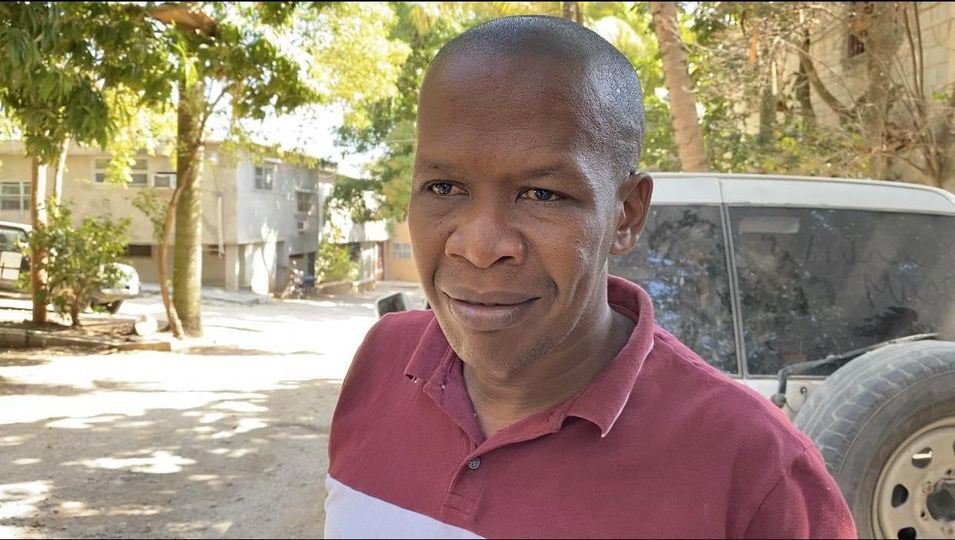Physical Address
304 North Cardinal St.
Dorchester Center, MA 02124
Physical Address
304 North Cardinal St.
Dorchester Center, MA 02124

Discover Haiti's need for ethical leaders who protect progress through integrity. Explore the "Guardians of Progress" article.
Haiti stands at a critical juncture in its development, facing numerous challenges that require effective leadership and integrity. The country’s progress is contingent upon the presence of leaders who can protect its interests and foster sustainable development.
The concept of “Guardians of Progress” embodies the qualities necessary for Haitian leadership to drive the country forward. These individuals must prioritize ethical governance, ensuring that decisions are made with the utmost integrity and for the benefit of the Haitian people.
By focusing on sustainable progress, Haiti can overcome its current challenges and build a brighter future.
The assassination of President Moïse has plunged Haiti into a deepening leadership crisis. This event has not only removed a key figure from the political landscape but has also exposed the underlying weaknesses in Haiti’s governance structure.
The sudden loss of President Moïse created a power vacuum that has been challenging to fill. The absence of a clear leader has led to a struggle for control among various political factions.
As the political void persists, gang violence has escalated, further destabilizing the country. This surge in violence is closely linked to the political instability, as various groups vie for power and influence.
The ongoing crisis has severe economic and humanitarian implications. The table below highlights some of the key concerns:
| Indicator | Status | Impact |
|---|---|---|
| Economic Growth | Negative | Increased poverty |
| Humanitarian Aid | Insufficient | Escalating humanitarian needs |
| Security Situation | Deteriorating | Rise in gang violence |
In conclusion, Haiti’s leadership crisis is multifaceted, involving political, economic, and humanitarian dimensions. Addressing these challenges will require a comprehensive approach that includes establishing stable leadership, reducing gang violence, and revitalizing the economy.
The evolution of leadership in Haiti reflects the country’s struggle for stability and progress. Since gaining independence in 1804, Haiti has experienced a tumultuous history marked by political upheavals, foreign interventions, and internal conflicts.
Haiti’s early leadership was characterized by strong figures like Jean-Jacques Dessalines, who led the revolution against French colonial rule. However, subsequent leaders faced significant challenges, including economic dependency and political instability.
Throughout its history, Haiti has seen various leadership patterns, from authoritarian regimes to attempts at democratic governance. These patterns have been influenced by both internal dynamics and external factors, such as foreign interventions.
Analyzing Haiti’s past leadership successes and failures provides valuable insights into effective governance strategies. Successful leaders have often prioritized national unity and economic development, while failures have been marked by corruption and authoritarianism.
The concept of “Guardians of Progress” represents a leadership paradigm that prioritizes the protection and advancement of societal interests. This approach to leadership is particularly relevant in contexts where stability and progress are threatened by internal or external challenges.
Leadership, in the context of “Guardians of Progress,” is defined by its focus on protecting the vulnerable and advancing the common good. This definition is rooted in the understanding that effective leadership is not merely about holding power, but about using that power to create positive change.
Protection involves safeguarding the rights and well-being of citizens, while advancement entails driving progress through innovation, policy reform, and social development. Together, these elements form the cornerstone of guardianship.
The guardian mindset is characterized by a commitment to service above self-interest. Leaders who embody this mindset prioritize the needs of their community over personal gain, demonstrating a selfless dedication to the greater good.
“The best leaders are those who understand that their role is not to rule, but to serve.”
Guar guardianship differs from traditional leadership models in its emphasis on ethical responsibility and long-term sustainability. Unlike conventional leadership approaches that often focus on short-term gains or personal ambition, guardianship is centred on creating lasting impact.
| Leadership Aspect | Traditional Leadership | Guar guardianship |
|---|---|---|
| Primary Focus | Power and Control | Service and Protection |
| Decision-Making | Often centralized and autocratic | Collaborative and inclusive |
| Long-term Goals | May prioritize short-term gains | Emphasizes sustainable progress |
Haiti’s path to progress is paved with the need for leaders who protect through integrity. The country’s development is intricately linked with the presence of leaders who not only aspire to power but also embody the values of transparency, accountability, and ethical governance.
Integrity is the backbone of effective leadership. As Nelson Mandela once said, “The greatest glory in living lies not in never falling, but in rising every time we fall.” Leaders with integrity inspire trust and confidence among their people, fostering a stable and prosperous environment. In Haiti’s context, integrity in leadership means making decisions that benefit the nation as a whole, rather than personal or partisan interests.
When leaders demonstrate integrity, they create a ripple effect of trust throughout society. As
“A leader is one who sees more than others, who sees farther than others and who sees before others.” – Leroy Eimes
In Haiti, this trust is crucial for rebuilding and strengthening social cohesion, which has been eroded by years of political instability and corruption.
Integrity is not just a moral virtue; it is also a critical component of sustainable progress. Leaders who operate with integrity are more likely to implement policies that are sustainable and equitable, ensuring that progress is not only achieved but also maintained over time. In Haiti, this means that leaders must prioritize the needs of the most vulnerable populations and work towards creating opportunities for all citizens.
By fostering a culture of integrity, Haiti can move towards a brighter future where development is driven by ethical leadership and collective progress.
In Haiti, the role of ethical leadership in shaping national development is multifaceted, affecting everything from economic growth to social cohesion. Ethical leadership is not just about making decisions; it’s about creating an environment where trust, transparency, and accountability thrive.
Transparent governance is a cornerstone of ethical leadership, directly influencing economic growth and stability. By ensuring that government actions and decisions are open to public scrutiny, Haiti can attract foreign investment and stimulate economic development.
Ethical leadership fosters social cohesion by promoting inclusivity and fairness. When citizens feel that their leaders are working for the greater good, it can lead to reduced violence and a more stable society.
A nation led by ethical leaders is more likely to engage in positive international relations and attract foreign investment. This is because ethical leadership is associated with stability, predictability, and a commitment to global norms.
By embracing ethical leadership, Haiti can make significant strides in national development, creating a brighter future for its citizens.
Haiti’s path to sustainable development hinges on ethical leadership across multiple critical domains. Effective leaders must address the country’s multifaceted challenges with integrity and vision.
A key area requiring ethical leadership is security sector reform. Strengthening the rule of law and reforming security institutions are crucial for reducing gang violence and promoting stability. Leaders must work to rebuild trust in these institutions.

Economic policy and anti-corruption measures are vital for Haiti’s development. Ethical leaders must implement transparent governance practices and combat corruption to attract foreign investment and stimulate economic growth.
Improving healthcare and education systems is essential for Haiti’s future. Leaders must prioritize these sectors to enhance human capital and provide opportunities for citizens. Investments in these areas will yield long-term benefits.
Within the broader context of development, ethical leaders must also focus on infrastructure development and environmental protection. Balancing growth with sustainability is crucial for Haiti’s resilience and prosperity.
By addressing these key domains with ethical leadership, Haiti can make significant strides toward a more stable and prosperous future.
The path to a prosperous Haiti is paved with strong, ethical leadership that draws on both traditional values and modern governance approaches. As the nation looks to the future, it’s crucial to explore various models of effective leadership that could be applied to drive progress.
Examining leadership models from countries that have faced similar challenges can provide valuable insights for Haiti. For instance, Rwanda’s post-conflict leadership and governance reforms offer a compelling example of how effective leadership can drive economic growth and social cohesion. Similarly, Costa Rica’s commitment to environmental stewardship and sustainable development presents a model for balancing economic progress with ecological preservation.
Haiti’s rich cultural heritage offers a foundation for indigenous leadership models that resonate with the local population. The concept of “Ubuntu” – a philosophy that emphasizes community and mutual support – can be adapted to foster a sense of unity and shared purpose among Haitians. Additionally, traditional Haitian values such as resilience and resourcefulness can be harnessed to inform modern leadership practices.
Effective leadership in Haiti will require a delicate balance between honouring traditional values and embracing modern governance approaches. This can be achieved by integrating traditional practices with contemporary management techniques. For example, incorporating local customs and cultural practices into governance structures can enhance legitimacy and public trust.
| Leadership Model | Traditional Values | Modern Governance Approaches |
|---|---|---|
| Indigenous Leadership | Community-centric, culturally rooted | Inclusive decision-making, transparency |
| Transformational Leadership | Inspires change, emphasizes social justice | Strategic planning, performance metrics |
| Servant Leadership | Prioritizes community needs, empathy | Participatory governance, accountability |
By exploring and adapting these leadership models, Haiti can cultivate a new generation of leaders who embody the principles of integrity, effectiveness, and cultural relevance.
As Haiti looks to the future, cultivating the next generation of leaders is crucial for the country’s progress. This involves a multi-faceted approach that includes educational initiatives, leadership development programs, and creating pathways for youth engagement in governance.
Educational initiatives play a vital role in shaping the next generation of leaders. Programs that focus on leadership development, civic education, and critical thinking can empower young Haitians to drive positive change. For instance, organizations like the Haitian Leadership Development program are working to foster leadership skills among youth.
Creating opportunities for young people to engage in governance is essential for ensuring that their voices are heard. This can be achieved through mentorship programs, internships with government agencies, and youth-led community projects. By engaging youth in governance, Haiti can build a more inclusive and representative leadership.
The Haitian diaspora can play a significant role in supporting leadership development. Through remittances, expertise, and networks, the diaspora can contribute to initiatives that foster young leadership. For example, diaspora organizations can support educational programs or provide mentorship to young Haitians.
| Initiative | Description | Impact |
|---|---|---|
| Leadership Development Programs | Training young leaders in governance and management | Empowers youth to drive change |
| Youth Engagement in Governance | Mentorship and internships in government agencies | Increases representation and inclusivity |
| Diaspora Support | Financial and expertise support for leadership initiatives | Enhances resources for leadership development |
By focusing on these areas, Haiti can cultivate a new generation of leaders who are equipped to address the country’s challenges and drive sustainable progress.

International support plays a crucial role in shaping Haiti’s leadership trajectory. As Haiti navigates its complex leadership challenges, the nature and quality of international backing can significantly influence its path forward.
Foreign assistance can be a double-edged sword. Effective models are those that are tailored to Haiti’s specific needs, fostering sustainable development and empowering local leadership. In contrast, ineffective models often create dependencies and fail to address the root causes of Haiti’s challenges. As Jean-Max Bellerive, former Prime Minister of Haiti, once noted, “The key to successful international support lies in understanding the local context and supporting Haitian-led initiatives.”
Building partnerships is crucial for Haiti’s long-term stability. This involves collaborative efforts between the Haitian government, international donors, and local stakeholders to identify and implement solutions that are in the best interest of Haiti. Such partnerships should aim to strengthen Haitian institutions and promote self-sufficiency.
Regional organizations neighbouring countries have a significant role to play in supporting Haiti’s leadership transformation. They can provide valuable technical assistance, facilitate dialogue, and offer financial support. For instance, the Caribbean Community (CARICOM) has been instrumental in promoting regional cooperation and stability.
By adopting a collaborative and nuanced approach to international support, Haiti can leverage external assistance to drive meaningful change and foster effective leadership.
Haiti’s journey towards a brighter future hinges on the emergence of leaders who embody the principles of integrity, ethical governance, and service to the nation. The concept of “Guardians of Progress” encapsulates the qualities required to navigate the country’s complex challenges and foster sustainable development.
To move forward, Haiti must prioritize the development of its next generation of leaders through education and leadership development programs. This involves creating pathways for youth engagement in governance and leveraging the diaspora community to support leadership development initiatives.
International support will play a crucial role in Haiti’s transformation, with a focus on building partnerships rather than dependencies. Regional organizations and neighbouring countries can contribute to this effort by sharing their expertise and resources.
The path forward for Haiti’s “Guardians of Progress” is clear: it requires collective action, a commitment to integrity, and a steadfast dedication to the nation’s progress. By working together, Haiti can overcome its current challenges and build a more prosperous future.
Haiti is facing a leadership crisis, marked by a power vacuum after President Moïse’s assassination, rising gang violence, and political instability, resulting in economic deterioration and humanitarian concerns.
“Guardians of Progress” refers to leaders who prioritize the protection and advancement of Haiti’s development, embodying integrity and a service-oriented mindset above self-interest.
Integrity is fundamental because it creates trust within Haitian society, fosters a stable environment, and is connected to achieving sustainable progress.
Ethical leadership can lead to economic growth and stability through transparent governance, foster social cohesion, reduce violence, and attract foreign investment, thereby positively impacting Haiti’s national development.
Key areas include security sector reform, economic policy, anti-corruption measures, healthcare, education systems, infrastructure development, and environmental protection.
This can be achieved through educational initiatives, leadership development programs, creating pathways for youth engagement in governance, and support from the diaspora.
International support can be effective by providing assistance models that build partnerships rather than dependencies, with regional organizations and neighbouring countries playing a significant role.
Examples include successful leadership models from similar contexts, indigenous leadership models rooted in Haitian culture, and balancing traditional values with modern governance approaches.